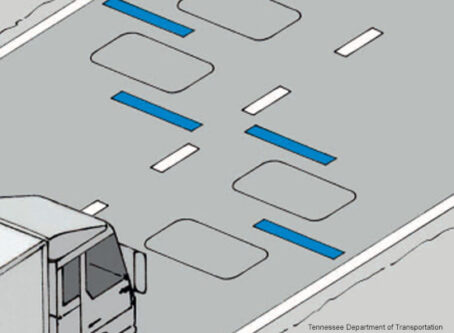Oklahoma bills would revise state’s truck size and weight rules
Changes could soon be on the way for how the state of Oklahoma handles truck size and weight rules.
One bill nearing passage at the statehouse would shift responsibility for enforcing truck size and weight regulations in the state.
SB617 would transfer truck enforcement oversight from the Oklahoma Corporation Commission to the Oklahoma Department of Transportation to be carried out by the Department of Public Safety.
Sponsored by Sen. Mark Allen, R-Spiro, the Senate-approved bill would provide funding for enforcement through the state Department of Transportation. Allen previously owned a trucking company that serviced oil fields in the state.
Advocates say the change in truck size and weight enforcement duties to the Department of Public Safety could result in better insurance rates.
Enforcement duties and responsibilities for the department would cover the International Registration Plan, International Fuel Tax Agreement, the Unified Carrier Registration program, and the administration of trip permits, temporary fuel permits and harvest permits.
The commission opposes the legislation. Commissioners have said the change would result in an estimated reduction of 160 employees.
An amendment to the bill clarifies that any loss of personnel due to the transfer would be done gradually through attrition.
The House Government Modernization and Efficiency Committee has voted to advance the truck size and weight bill to the full House. If approved there, SB617 would head back to the Senate for consideration of changes before it can go to the governor’s desk.
Overweight vehicles
A Senate-approved bill, and companion to SB617, would establish and adjust the bond schedule for overweight vehicles.
The bill, SB691, would set a $200 fine for vehicles overweight by 750 to 3,000 pounds. A fine of $250 would be handed out for vehicles overweight by 3,001 to 5,000 pounds. A $450 fine would be set for vehicles overweight by 5,001 to 7,000 pounds. And a fine of $650 would be applied for overweight loads of 7,001 to 10,000 pounds.
Any vehicle overweight by more than 10,000 pounds would be assessed a fine of 10 cents per pound in excess of the weight limit.
The House Transportation Committee has voted to advance the bill to the full House. If approved there, SB691 would head to the governor’s desk. LL









